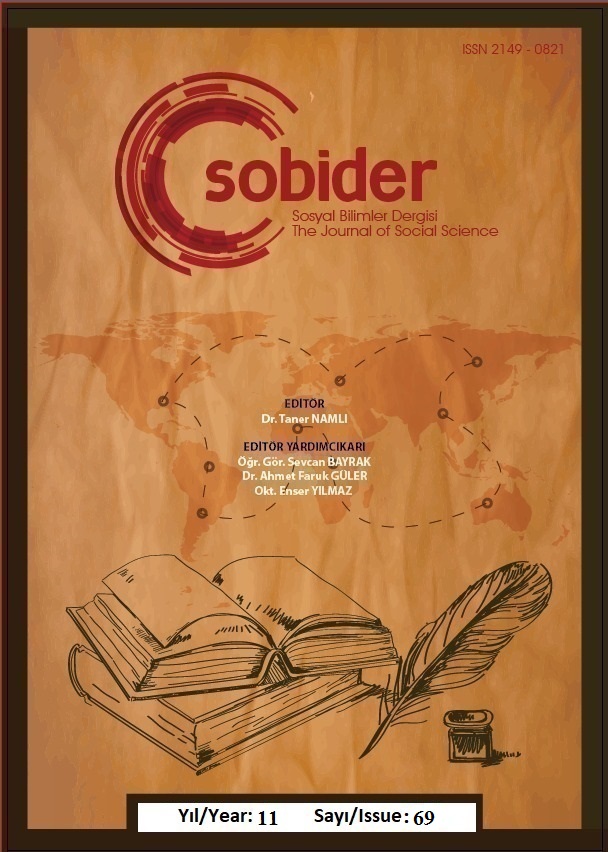Author :
Abstract
Eski Türk inanç sistemi içerisinde gök; yüksekliği, sonsuzluğu, kutsallığı ve tanrısallığı ifade ettiği için özel bir önem teşkil etmiştir. Türkler göğü, kendilerini ve yurdu koruyan bir çadır tavanı olarak tasvir etmişlerdir. Böylelikle kadim Türkler, göğün çok katlı olduğuna ve en üst katında da büyük Tanrı’nın yaşadığına inanmışlardır. Bu sebeple ilahi bir yardım isteyecekleri zaman gökten yardım istemişler, göğe yemin etmişlerlerdir. Göğe verdikleri önem sebebiyle tanrılarına Gök Tanrı demeyi uygun görmüşlerdir. Eski Türklerin göğe verdikleri önem gök cisimlerine yükledikleri anlamı da etkilemiştir. Bu anlamda günlük hayattaki işlerini Güneş’in, Ay’ın ve yıldızların durumuna göre tayin etmişlerdir. Ay ile Güneş’i ışık ve ısı kaynağı, yıldızları da pusula olarak görmüşlerdir. Bu sebeple gökyüzündeki cisimleri kutsal saymışlardır. Gök olaylarını ise günlük yaşamlarını sekteye uğrattığı için pek hoş karşılamamışlar ve tanrının gönderdiği bir ceza olarak algılamışlardır. Bu çalışmada İslam öncesi Türk inanç sisteminde göğün, gök cisimlerinin ve gök olaylarının etkisi tespit edilmeye çalışılacaktır.
Keywords
Abstract
In the ancient Turkic belief system, the Sky held significance as it symbolized height, infinity, sacredness, and divinity. Turks portrayed the sky as the tent roof protecting Turks and their homeland. Ancient Turks believed in a multi-layered sky, with the great God residing in the uppermost layer. Consequently, when seeking help, they would request assistance from the sky and swear oaths to it. The importance attributed to the sky led them to refer to their gods as the Sky God. This significance influenced the meaning assigned to celestial bodies. Ancient Turks regulated their daily activities based on the positions of the Sun, Moon, and stars. They viewed the Moon and the Sun as sources of light and warmth, considering the stars as their compass. Hence, they held celestial bodies as sacred. However, disruptions caused by celestial events were not well-received, perceived as punishments sent by the gods. This study aims to identify the influence of the sky, celestial bodies, and celestial events in the pre-Islamic Turkic belief system.





